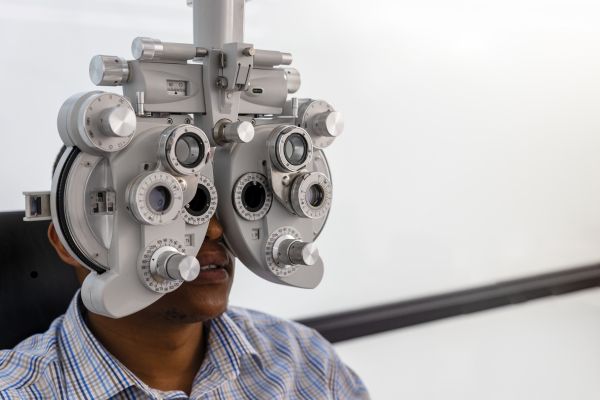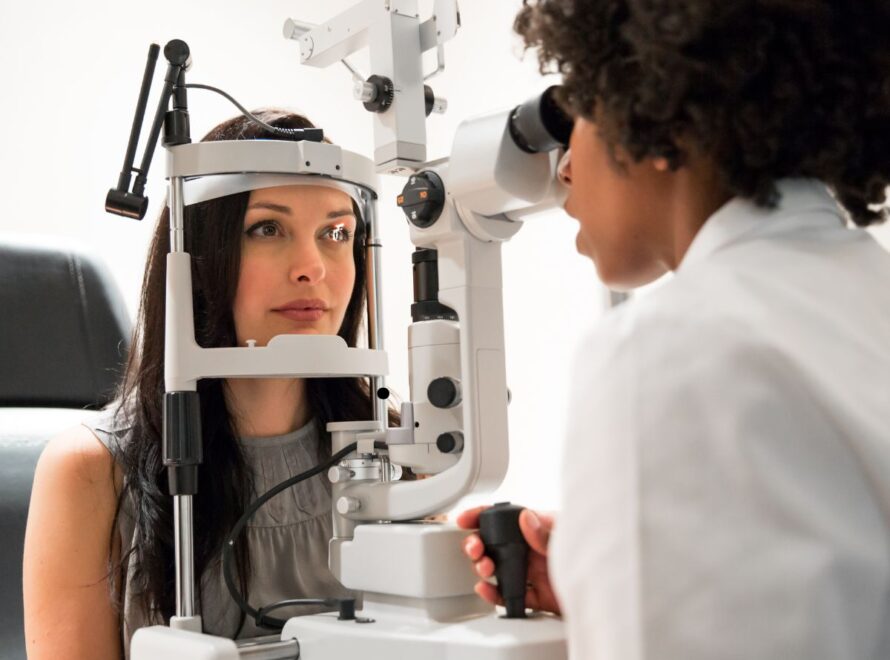Maintaining eye health is crucial for overall well-being. Our eyes are essential for most daily activities, and taking care of them should be a priority. In this comprehensive guide, we will delve into effective strategies and tips to ensure your eyes remain in optimal condition.
Understanding the Importance of Eye Health
Our eyes are the windows to the world, and preserving their health is vital. Poor eye health can lead to various issues, including impaired vision, discomfort, and severe eye diseases. Regular eye care can prevent many of these problems and ensure long-term eye health.
Regular Eye Examinations
One of the most critical steps in maintaining eye health is regular eye examinations. Scheduling an eye exam at least once a year can help detect early signs of eye conditions such as glaucoma, cataracts, and macular degeneration. Early detection and treatment are key to preventing vision loss.
Healthy Diet for Healthy Eyes
A balanced diet rich in essential nutrients can significantly impact your eye health. Here are some vital nutrients and their benefits:
- Vitamin A: Found in carrots, sweet potatoes, and leafy greens, Vitamin A is crucial for good vision.
- Omega-3 Fatty Acids: Present in fish like salmon and flaxseeds, omega-3 fatty acids help reduce the risk of dry eyes and age-related macular degeneration.
- Vitamin C: Citrus fruits, strawberries, and bell peppers are excellent sources of Vitamin C, which helps prevent cataracts.
- Vitamin E: Nuts, seeds, and spinach contain Vitamin E, which protects the eyes from free radical damage.
Protecting Your Eyes from UV Light
Exposure to ultraviolet (UV) rays can harm your eyes and increase the risk of cataracts and other eye conditions. To protect your eyes:
- Wear Sunglasses: Choose sunglasses that block 99% to 100% of both UVA and UVB rays.
- Use Hats: A wide-brimmed hat can provide additional protection against UV rays.
Maintaining Good Hygiene
Good hygiene practices can prevent eye infections and irritation. Follow these tips to keep your eyes clean and healthy:
- Avoid Touching Your Eyes: Hands can carry bacteria and viruses, so avoid touching your eyes unnecessarily.
- Clean Contact Lenses Properly: If you wear contact lenses, ensure they are cleaned and stored correctly to prevent infections.
- Remove Makeup Thoroughly: Always remove eye makeup before going to bed to prevent irritation and potential infections.
Managing Screen Time
In today’s digital age, prolonged screen time can strain your eyes and lead to computer vision syndrome. To mitigate this:
- Follow the 20-20-20 Rule: Every 20 minutes, take a 20-second break and look at something 20 feet away.
- Adjust Your Screen: Ensure your screen is at eye level and about 20-24 inches away from your face.
- Use Anti-Glare Screens: Anti-glare screens can reduce eye strain from prolonged computer use.
Stay Hydrated
Staying hydrated is essential for overall health, including eye health. Dehydration can cause dry eyes and discomfort. Drink plenty of water throughout the day to keep your eyes moist and well-lubricated.
Regular Exercise
Regular physical activity can improve blood circulation, which benefits your eyes. Exercise can help reduce the risk of conditions such as diabetes, which can affect eye health.
Quit Smoking
Smoking is detrimental to eye health. It increases the risk of cataracts, macular degeneration, and other eye diseases. Quitting smoking can significantly improve your eye health and overall well-being.
Adequate Sleep
Getting enough sleep is vital for eye health. Lack of sleep can lead to eye fatigue, dryness, and discomfort. Aim for 7-9 hours of sleep per night to keep your eyes rested and refreshed.
Use Protective Eyewear
If you engage in activities that pose a risk to your eyes, such as sports or construction work, always wear appropriate protective eyewear. Safety glasses, goggles, and helmets can prevent eye injuries.
Know Your Family History
Some eye conditions are hereditary. Knowing your family history can help you take proactive measures if you are at higher risk for certain eye diseases.
Monitor Your Health
Conditions such as diabetes and hypertension can affect your eyes. Regular check-ups and managing these conditions effectively can help protect your eye health.
Use Proper Lighting
Good lighting is essential to reduce eye strain. Ensure your workspace and reading areas are well-lit. Avoid using dim lights or staring at bright screens in the dark.
Avoid Rubbing Your Eyes
Rubbing your eyes can cause irritation and potential damage. If your eyes are itchy, use a cold compress or consult an eye specialist for appropriate treatment.
Stay Informed
Stay updated on the latest information about eye health. Regularly reading reputable sources and consulting with eye care professionals can help you make informed decisions about your eye care routine.
Conclusion
Taking care of your eyes is an ongoing process that involves regular check-ups, a healthy diet, good hygiene, and protective measures. By incorporating these practices into your daily routine, you can maintain optimal eye health and prevent potential issues.





